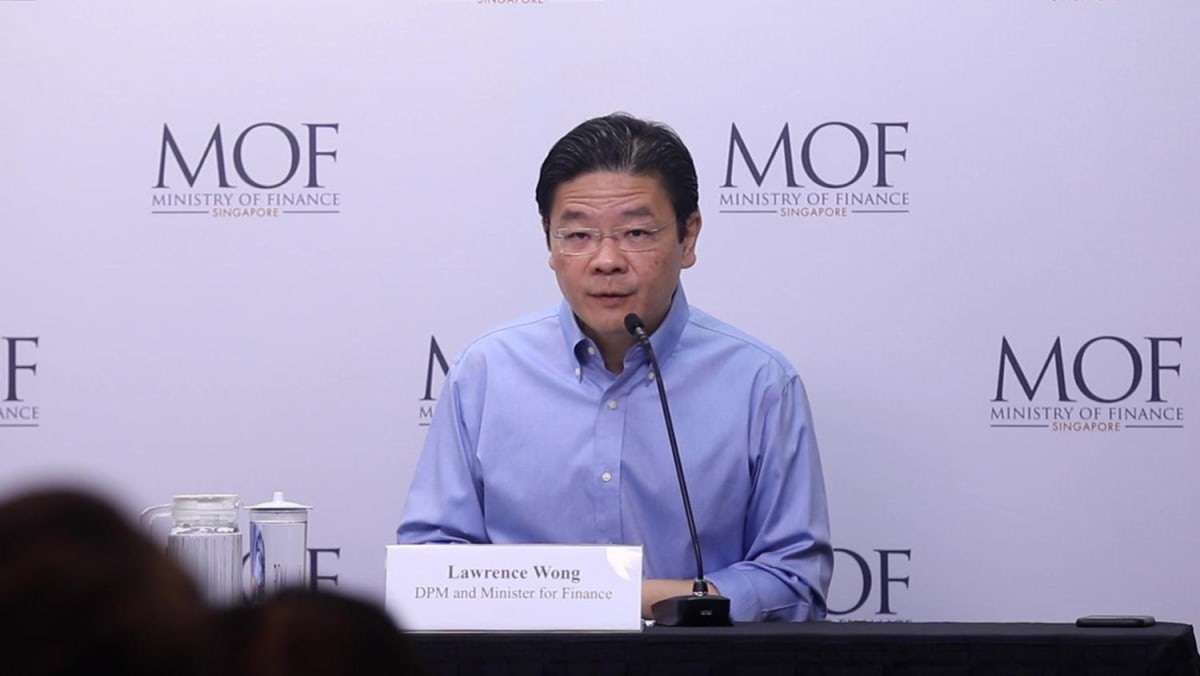
SINGAPORE — As part of a S$1.1 billion support package to help low- and middle-income families cope with rising living costs, eligible adult Singaporeans will get an additional cash payment of up to S$200 in December 2023, on top of the existing Assurance Package (AP) cash component to be disbursed this year.
This means up to S$800 in cash will be disbursed to eligible adult Singaporeans by the end of the year.
On top of this, an additional S$200 of Community Development Council (CDC) vouchers will also be distributed to every Singaporean household from January 2024, bringing the total amount disbursed that year to S$500.
Announcing the new Cost-of-Living Support Package on Thursday (Sept 26), Deputy Prime Minister and Minister for Finance Lawrence Wong said the additional cash payment is expected to benefit some 2.5 million Singaporeans.
There is no drawdown on past reserves to fund these additional measures, and the sum will come from provisions that have been set out in the 2023 Budget instead, he said.
The announcement follows a recent hike of up to 7 per cent for public transport fares at the end of the year, and an 18.2 per cent increase in water prices that will begin in phases from next April.
Apart from the additional cash payments and CDC vouchers, the Government will also be disbursing additional rebates for service and conservancy charges (S&CC), as well as more U-Save rebates that help to defray utility costs.
“While inflation has come down from its peak, households are still dealing with the impact of price increases in various areas,” said a Ministry of Finance (MOF) press release.
Speaking to the media, Mr Wong said the considerations for implementing this package were the uncertain economic outlook, possible disruptions to energy and food supplies and the likelihood that real income growth will moderate in 2023.
Asked if there will be more such support packages, Mr Wong said the Government’s preference will be to prepare and provide for things within that year’s Budget.
“But if there are these unpredictable changes in the external environment, then certainly the Government will always stand ready to respond promptly and swiftly, and to make sure we provide all the necessary support for Singaporeans.”
UP TO S$200 ADDITIONAL CASH PAYMENT
The MOF said that adults aged 21 and above in 2024 with annual assessable incomes of up to S$100,000 and who do not own more than one property are eligible for the support payment.
Those with assessable annual incomes of less than or equal to S$34,000 will receive the additional S$200 payout, while those earning between S$34,000 and S$100,000 will get S$150.
The “one-off special payment” will be disbursed in December 2023, together with the existing Assurance Package cash component that was announced in Budget 2023.
CDC VOUCHERS
An additional S$200 of CDC vouchers will also be distributed to every Singaporean household in 2024, bringing the total amount to S$500. The vouchers will be allocated equally — S$100 for spending at heartland merchants and hawkers, and the other S$100 for participating supermarkets.
Households can claim their vouchers from Jan 3, 2024 onwards until their expiry at end-2024.
The newest support package aims to provide more relief to Singaporean households and builds on the slew of measures announced at Budget 2023, bringing the AP to over S$10 million.
ADDITIONAL S&CC AND U-SAVE REBATES
Housing and Development Board (HDB) households will also get an additional one-off 0.5 month S&CC rebate, on top of the regular rebates. This will be disbursed in January 2024.
Taken together, the rebates will offset the S&CC increase in the first year for 1- to 4-room HDB flats, or up to 85 per cent for larger flats.
An additional S$20 per quarter of U-Save rebates will be provided to 950,000 households for two years from January 2024 to December 2025. These rebates will be disbursed together with the regular U-Save rebates to cushion the impact of price increases in carbon tax and water prices, which are due to take place in 2024 and 2025 respectively.
The U-Save rebates will, on average:
fully offset the utility bills for 1-to-2-room flats offset 80 per cent of the bills for 3-to-4-room flatsoffset 65 per cent of the bills for larger flats
PUBLIC TRANSPORT SUBSIDIES
MOF also announced additional subsidies of about S$300 million in 2024 to cover the deferred fare adjustment quantum of 15.6 per cent that will be carried over to future fare review exercises. This was previously stipulated by the Public Transport Council on Sept 18, 2023.
This subsidy will help to moderate the fare increase and cover the increased cost of providing public transport services “due to the continued increase in energy prices in 2022, core inflation and strong wage growth”, MOF said.
Resident households with a monthly income per person of not more than S$1,600 will receive Public Transport vouchers worth S$50, which will be disbursed from end-December. They will be able to use these vouchers to top up fare cards and purchase concession passes.
ADDITIONAL REPORTING BY LORAINE LEE AND RENALD LOH